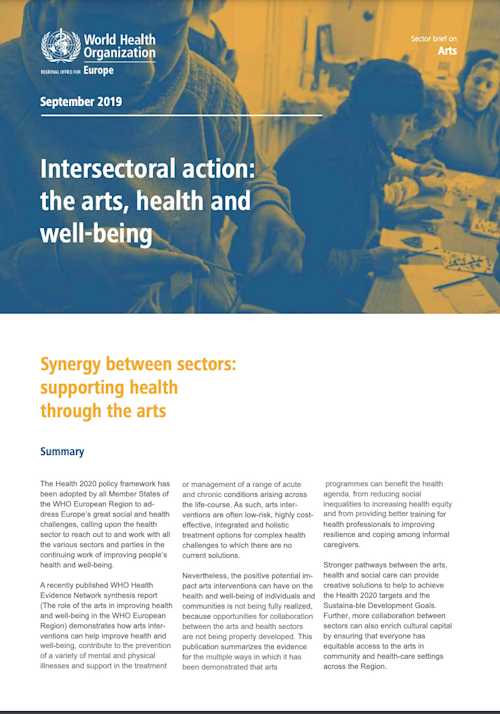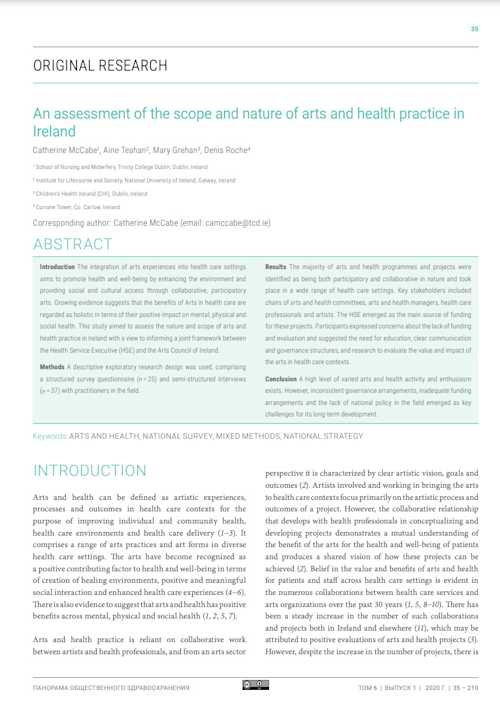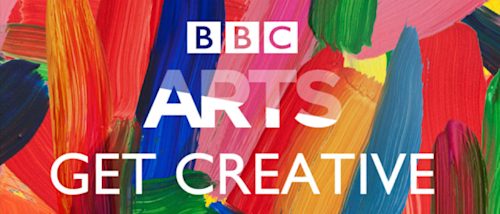
Since 2018, MARCH has collaborated with the World Health Organisation to produce a series of policy reports on how the arts, culture and heritage can affect mental and physical health. Our evidence synthesis review included over 3,000 studies, making it the largest synthesis report ever published. The report was named the Global Aesthetic Achievement of 2019 and has led to new policy initiatives on arts and health in countries across the WHO European Region.
The report was followed by an intersectoral brief showing how the arts and culture are relevant to the Health 2020 goals, which aim to improve global health, reduce inequalities and ensure people-centered health systems. We also published a special edition of the WHO Panorama journal on arts and health.
In the UK, we took this work forward with various government departments and Arts Councils, supporting their strategies and policy and funding decisions. For example, we worked with the Department for Culture, Media and Sport, providing evidence for the development of new community arts programmes or increased engagement with social prescribing.

Read the DCMS report
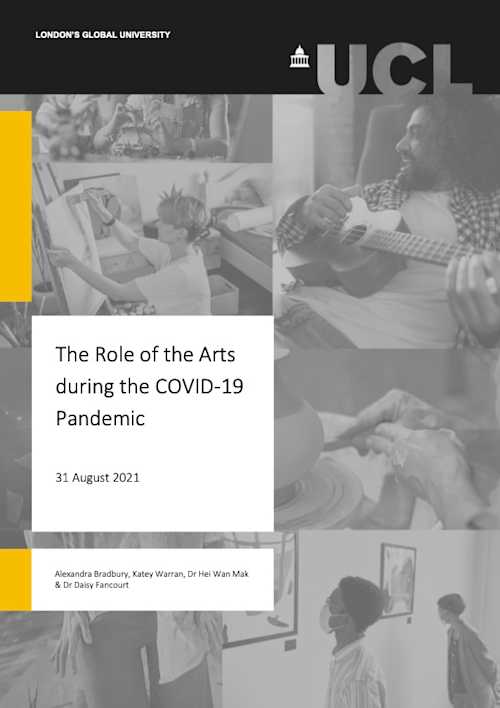
Read our Arts Council England COVID-19 report

Read our Arts Council England Report on the Arts, Culture & the Brain
This report considers how we can collectively improve access to the arts, drawing on new research and case studies of community practice. It has been developed from research and co-production within the MARCH Mental Health Research Network.
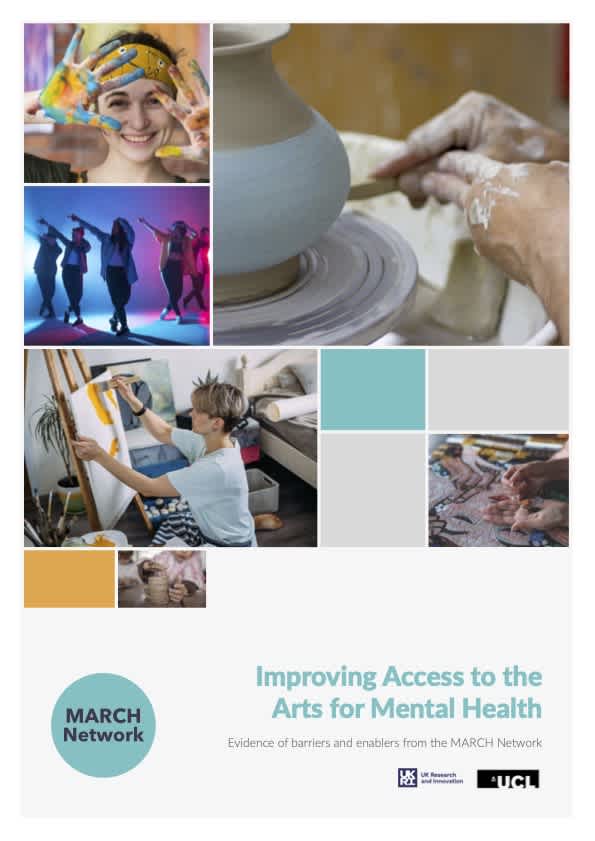
Social prescribing involves the referral of patients to community activities to support health and wellbeing. These referrals can be made by health or care professionals or by individuals themselves. MARCH has worked closely with the Social Prescribing Network and NHS England on the national roll-out of Social Prescribing in the UK.
During the network’s lifetime, we ran a number of conferences and events on the evidence base around social prescribing. Working with NHS England, we analysed data from electronic patient records to identify who has been receiving social prescribing. We have also published a number of studies exploring what the barriers and enablers to engaging with social prescribing are amongst individuals with mental illness, community organisations and GPs.
We also set up a new large-scale research project (SHAPER) to explore how effective community programmes can be tested in clinical trials and embedded within the health service. We also launched the WHO Collaborating Centre on Arts & Health, focused on international policy development.
MARCH also had a core focus on encouraging individual community engagement. We partnered with the BBC to produce dozens of media pieces on how community engagement benefits mental health.
With the BBC, we ran two Citizen Science experiments to gather new data from 98,000 adults. This has contributed to a number of papers including showing how creativity can help us regulate our emotions and on the development a new scale measuring creativity and emotion regulation (the ERS-ACA scale).
During the COVID-19 pandemic, MARCH launched the COVID-19 Social Study to track the psychological and social impact of lockdowns. The study involved 72,000 participants followed-up repeatedly over 18 months providing over 1 million surveys. The team published over 100 reports and papers informing decisions taken and support provided across the UK. MARCH also established the COVID-MINDS Network: a network of 160 longitudinal mental health surveys from 70 countries, to allow the cross-national comparison of experiences.
Additionally, we produced an online resource compiling dozens of creative activities people could do from their own homes during lockdowns. We also researched the impact of these activities on mental health.
Read about patterns of creative engagement during COVID-19
Read about the benefits of creative engagement during COVID-19
During the lifetime of the network, MARCH shared over 200 policy updates with members. Below are some of the key documents published between 2018 and 2021 on community engagement and mental health:
The UCL Institute of Health Equity
Visit website
The King’s Fund
Visit website
Common Vision
Visit website
The Department of Digital, Culture, Media and Sport
Visit website
What Works Wellbeing
Visit website
The Institute of Labor Economics
Visit website
The University of Westminster
Visit website
The Baring Foundation
Visit website
The Heritage Fund
Visit website
The National Trust and the University of Derby
Visit website
Public Health England
Visit website
Creative People and Places and The Arts Professional
Visit website
The Historic Landscape and Mental Wellbeing Report
Visit website
The Personal Social Services Research Unit at the LSE
Visit website
Public Health England
Visit website
Arts Council England
Visit website
The Ministry of Housing, Communities and Local Government
Visit website

Do you want to learn more about how social, cultural and community engagement affects mental health? Take part in our online training course run in partnership with the Royal Society for Public Health.




